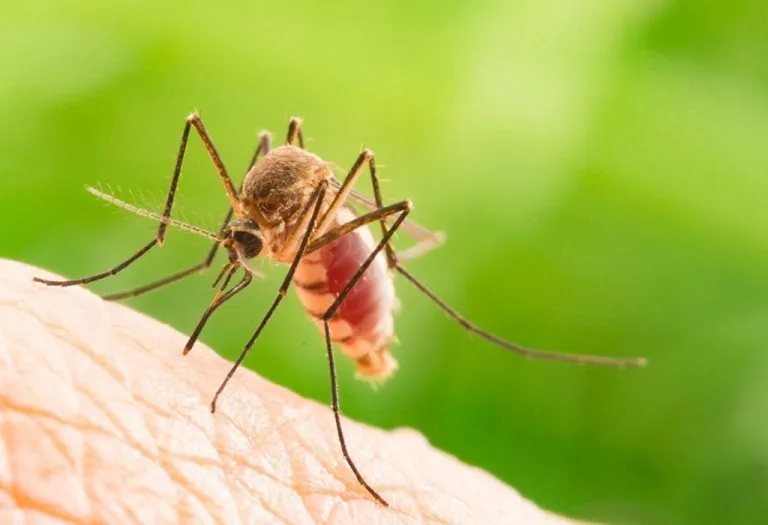12 Important Pregnancy Care Tips During Monsoon

The allure of monsoons is what causes any person to step out and enjoy the first rains in all their glory. As a pregnant woman, the possibility of lying in your armchair, sipping hot soup, while reading your favourite book and listening to the rain rage outside can be quite a dream. Along with the rains, monsoons bring with themselves a ton of other aspects that make monsoon care for moms-to-be an essential thing to remember. In this article, we’re sharing 12 simple yet essential tips on pregnancy care during monsoon to help you stay safe, healthy, and comfortable through the rainy days ahead. So grab a cup of something warm, get cosy, and let’s begin!
Essential Monsoon Care Tips During Pregnancy
It can be tricky to take care of yourself when the weather changes. Here are some tips for pregnant women during monsoon.
1. Sticking to a Well-Balanced, Nutritious Diet
A diet that includes everything that a mother and her baby need is anyway a necessity when pregnant. However, it becomes more mandatory to follow in monsoons. This is a time period when the general immunity in a body is at its lowest, and monsoons bring along many diseases. Go for a diet that is high in protein, which gives you a good amount of nutrition. Consuming warm food items and sipping on healthy soups is a great choice. Stick to freshly prepared food items and avoid green vegetables like spinach or cabbage, since there are higher chances of those carrying germs (1).
2. Maintain the Usual Fluid Intake
The humidity in the atmosphere increases while the overall temperature reduces, making monsoons pleasant. This also tricks your body into thinking it has enough fluids, since it tends to compare with the previous season of summer. This is precisely why many pregnant women suffer from dehydration in the monsoons, leading to nausea, headaches and complaints of fainting. Ensure that your fluid intake is tracked and stays at the same level as before (2). Add juices and coconut water regularly into your diet.
3. Outside Food Is to Be Avoided, Despite Cravings
All those previous times when you’d step out with your friends to gorge on some nice street food need to take a strict backseat when you’re pregnant. We’ve all experienced stomach problems, at the very least, after eating street food. Apart from unhygienic conditions and uncertainty of the sources of water used in those food items, consuming extremely spicy street food with all those chemicals can be quite harmful to you and the baby. Even any fruits that are cut and kept out for sale can be a housing project for multiple diseases, especially during monsoons (3). Satiate your craving by making chaat at home using safe water.
4. Personal Hygiene Should Take Even More Importance
You might be maintaining general cleanliness all around, but monsoons bring about a new level of infections and diseases. The slightest chance of overlooking any aspect of hygiene, as simple as washing hands prior to cooking, can pave a pathway for germs to reach your body and, in worst cases, your baby, too. Lowered immunity makes it even easier for diseases to reach you, which is why it is necessary to keep a disinfectant with you at all times. Moreover, if you fall sick with an infection, a doctor may not be able to recommend any antibiotics and strong medication due to its effects on the baby and you will have to resort to natural remedies that can take quite some time to alleviate the sickness. Prevention is the best cure.
5. Sanitation of the Surroundings Plays a Key Role
Taking care of the area around you and keeping it free from infection is an important aspect to be kept in mind as well. Using a nice-smelling soap solution for cleaning the home isn’t sufficient. Replace that with a strong disinfectant that can rid your home of any microbes or germs that stay even in the darkest corners. Take care to wash and replace your beddings and other upholstery regularly since visitors and other guests can bring germs along with them from the outside.
6. Mosquitoes Are Your Worst Enemies
There are few people who are lucky in this world to stay at a home that is free from mosquito invasion. Most of us have to be at war, especially in monsoons, when mosquitoes enter our homes en masse. Using a mosquito repellent is the first line of defence but do not shy away from using a liquidator as well (4). Using nets over your beds can help you get a good sleep at night. Keep a watch around your home and in the surroundings for places where stagnant pools of water might remain. These breeding grounds of mosquitoes should be taken care of or should be avoided as much as possible.
7. The Right Footwear Helps You Keep Safe At All Times
If you prefer taking walks outside or are still in the early stages of pregnancy and working, you need to take extra care in maintaining your balance with the widespread presence of slippery surfaces in monsoons. Even the roads you are well-versed with can turn into unknown pathways when they are covered with water or even wet. Any slip and fall can be deemed harmful to the baby and you.
8. Make Dressing Choices As Per the Weather
Increased humidity and chances of getting wet in the rain make it necessary to wear clothing that allows you to breathe better and keeps your body dry. Cotton clothes are the best. Avoid synthetic choices since they do not absorb sweat and will lead to rashes on the skin.
9. Make Bathing a Time for Disinfection
Once a day, make sure you take a bath that contains disinfectants. This reduces the chances of microbes and infections staying on your body for long and finding their way inside you. Using neem with hot water or even a cap of Dettol with hot water can not only give a relaxing bath but make you feel clean and healthy, too.
10. Strengthen Your Immunity
Pregnancy naturally lowers your immune defences, making you more vulnerable to seasonal infections, especially during the monsoon when viruses, bacteria, and fungi thrive. To give your immune system a healthy boost, focus on a nutrient-rich diet packed with immunity-enhancing foods like citrus fruits (rich in Vitamin C), leafy greens, turmeric, garlic, ginger, and yogurt with probiotics. Including warm herbal teas like tulsi or ginger tea (if approved by your doctor) can also help (5). Stay consistent with your prenatal vitamins and consult your doctor if you need additional supplements like Vitamin D or zinc, which are essential for fighting off infections.
11. Stay Active Indoors
Rainy weather often means you’re stuck indoors, but that doesn’t mean skipping physical activity. Staying active during pregnancy supports healthy blood circulation, reduces swelling, improves digestion, and can even help lift your mood (6). On rainy days, try simple indoor exercises like prenatal yoga, gentle stretching, walking around your home, or following online pregnancy-safe workout videos. Even 20-30 minutes of daily movement can make a big difference in your overall well-being.
12. Being Over-Prepared Is Better than Being Caught Unaware
Pregnancy shifts all the things you could do yourself to a higher difficulty level. Therefore, it is better to take into account possible scenarios and prepare for them. While stepping out, carry an umbrella and make sure your phone is charged. Carry a power-bank if needed. Check for weather updates and avoid going out during times when showers are predicted.
FAQs
1. Is it safe to travel during the monsoon while pregnant?
Travelling during pregnancy is generally safe in the second trimester (7), but the monsoon adds risks like slippery roads and waterlogging. If travel is necessary, choose reliable transport, avoid peak rainfall hours, and carry essentials like water, dry snacks, and a first-aid kit. Always consult your doctor before planning any trip.
2. What are some warning signs I should never ignore during monsoon pregnancy?
Watch out for high fever, unusual fatigue, swelling, dizziness, vaginal discharge with odour, or reduced fetal movement. These could be signs of infection or pregnancy complications and should be reported to your doctor immediately.
Everybody looks forward to the monsoons, and wishes to enjoy them to the fullest. Being pregnant might bring in a few restrictions, but that doesn’t mean you cannot enjoy the weather. Keeping a few monsoon pregnancy care tips in mind can make sure you stay safe at all times, and enjoy the weather and the beautiful rains with your little one inside you!
References/Resources:
1. The Johns Hopkins Medicine – Nutrition During Pregnancy
3. Apollo Cradle – Pregnancy Care Tips for Mothers to Stay Healthy During Monsoon
4. Nemours KidsHealth – Using Bug Killers and Repellents During Pregnancy
5. Cleveland Clinic – 11 Foods That Boost Your Immune System
6. American College of Obstetricians and Gynecologists – Exercise During Pregnancy
7. NHS – Travelling in pregnancy
Also Read:
Dengue in Pregnancy
Motion Sickness during Pregnancy
Rainy Season Diet Tips for Pregnant Women
Was This Article Helpful?
Parenting is a huge responsibility, for you as a caregiver, but also for us as a parenting content platform. We understand that and take our responsibility of creating credible content seriously. FirstCry Parenting articles are written and published only after extensive research using factually sound references to deliver quality content that is accurate, validated by experts, and completely reliable. To understand how we go about creating content that is credible, read our editorial policy here.




































